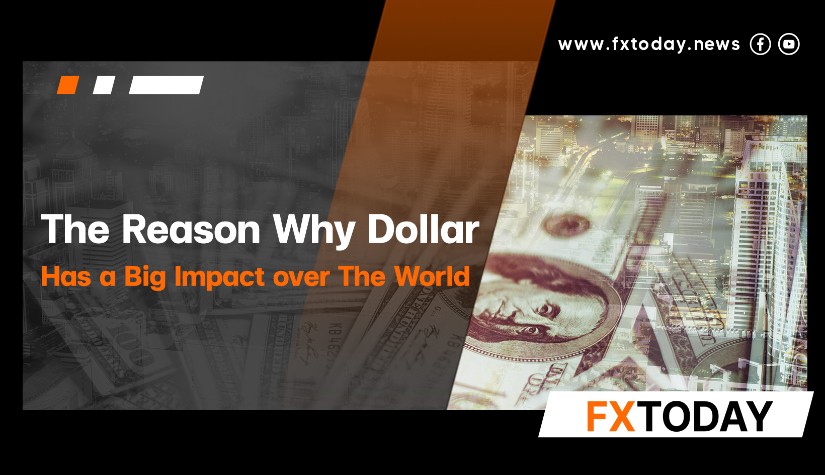In the past, the “United States Dollar" was not the dominant currency. However, in recent times, people have turned to using the US dollar instead of other currencies. Today, we will explore the reasons behind the US dollar becoming the most powerful currency in the world and its implications for global finance and politics.
The History of the US Dollar
It can be said that the history of the American Revolution and the formation of the United States is intertwined with the origin of the US dollar. In the past, after the world wars, during the era of reconstruction, not only the countries that lost the war had to bring out money to pay reparations, but also the victorious countries began to suffer from economic exhaustion due to the loss of military power. As a result, gold became the standard for determining the value of the currency, and it started to flow out of the country's treasury.
However, the United States held significant gold reserves, as other countries had to pay war reparations to them. As a result, the US rose as a new superpower, replacing declining colonial powers.
In 1944, the United States hosted the Bretton Woods Conference in Bretton Woods, New Hampshire, inviting representatives from 44 countries to discuss the “global monetary system.”

Bretton Woods Conference - Us Dollar Equals Gold
During the Bretton Woods Conference, the United States, due to its superior resources, established a global monetary system by pegging the US dollar to gold. The US dollar was the only currency that could determine its value, set at $35 per ounce of gold.
With this system, international trade progressed as the demand for US dollars increased. Holding US dollars was equivalent to holding gold. However, this did not necessarily make the US dollar strong, as the fixed exchange rate regime limited the flexibility of currency exchange rates, which went against market mechanisms.

The Shift from Bretton Woods to Floating Exchange Rates
The exchange rates of different countries can fluctuate continuously, but the US dollar remains unchanged. This has become a significant problem that has caused many countries to be concerned. As a result, countries that hold US dollars have gradually started to exchange them for gold, which has led to a shortage of gold in the reserves of the United States.
Richard Nixon, the President of the United States at that time, held negotiations with his advisors to decide on changing the currency system to a "Floating Exchange Rate" on Sunday, August 15, 1971, just one day before the stock market opened. The announcement on Sunday was considered a wise decision by the leader of the United States, as it gave investors time to discuss and exchange information.

The next day, when the stock market opened, the stocks in the United States only experienced a slight drop, hence people called this event the 'Nixon Shock.’ In addition to announcing the floating exchange rate, Nixon also announced an increase in import taxes and invited oil-exporting nations to accept only the US dollar for oil transactions. This event was known as the "Petrodollar" and resulted in the US dollar becoming more desirable and influential in the world.
Although the US dollar has a significant history, it is not the strongest currency. The reasons that have made the US dollar influential are as follows:
1. The US dollar can freely move without government control.
2. The US Federal Reserve has independence in conducting monetary policies.
3. The strength of the US economy supports the US dollar.
4. The foreign exchange and debt markets of the US have high liquidity, allowing international investors to access them.
5. The US dollar is used for over 90% of foreign exchange transactions in the global market.
6. The US dollar is widely used in global transactions.
7. The US dollar is the most widely used foreign reserve currency in the world.
8. The US Dollar denominates almost 40% of the world's debt.
Conclusion
In summary, the US dollar has a strong initial foundation but has undergone revolutions according to market mechanisms. However, these are not the only factors that have made the US dollar influential, as it also relies on globally accepted strategies and policies, including its widespread use as a medium of exchange in global transactions. The dominance of the US dollar in the world is a testament to its adaptability and resilience, as well as the nation's economic strength and political stability.
______________________________
Maximize your knowledge: Blog
Keep up to date on global events: News
Updated
1 year ago
(Apr 26, 2023 16:45)
